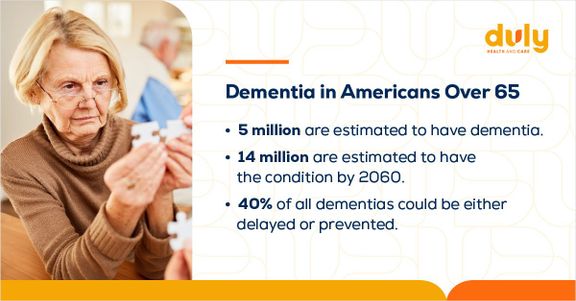The internet is a resource for all kinds of information and activities. It can help you keep in touch with friends, explore new recipes, and find that perfect gift for someone you love — all with a few clicks, keystrokes, or swipes.
But the internet might be more than just convenient — it may also be good for your brain health. This is welcome news to many, as cases of dementia (a reduced ability to think, remember, and make decisions that interferes with your daily activities) are on the rise.

While dementia may be more of a concern as you age, preventing dementia begins when you’re young. One of the ways you can keep your brain sharp is by doing what many are already doing — browsing the internet.
Here’s how healthy internet usage may reduce your risk of dementia and what other tactics you can take to keep your brain healthy.
Internet Usage and Dementia: What’s the Connection?
When you use the internet, you’re using your brain, too. Whether you’re messaging a friend on social media or searching for a new restaurant to try, you’re activating parts of your brain that you need to keep it working as it should.
A 2023 study revealed that regular internet usage in adults between the ages of 50 and 65 can cut the risk of developing dementia in half, compared to the risk of those who don’t use it regularly.
In the study, about 18,000 participants were asked if they regularly used the internet for activities like emailing, shopping online, searching for information, or making reservations for travel. They were also asked how much time they spent online, with options ranging from never to over eight hours a day.
Compared to those who didn’t regularly use the internet, those who did (but spent less than two hours online each day) had the lowest risk of developing dementia.
This is likely because engaging online can help strengthen cognitive reserve, or your brain’s ability to problem solve and navigate challenges. After all, keeping your brain active — whether through online use or other means, like crossword puzzles — is a key pillar of long-term brain health.
Do you have concerns about your brain health as you age? Make an appointment with a Duly Neurologist to learn about reducing your risk of dementia.
This doesn’t mean you should start spending your entire day online. To start, the study doesn’t establish cause and effect. What’s more, there is such a thing as unhealthy internet usage, which might have an opposite, unhealthy effect on your brain.
Healthy vs. Unhealthy Internet Usage
Not all of the internet is created equal. Watching endless hours of funny videos may have a different impact than researching a DIY project or corresponding with loved ones.
There are potential negative impacts of the internet, especially if not used thoughtfully.
These include trouble sleeping, mental health concerns, and eye strain.
To maintain a healthy approach to internet usage:
- Limit how much time you spend on social media
- Spend at least a few hours each day without any screens, including TVs, computers, and phones
- Avoid screens an hour before sleep
- Give your eyes a break every twenty minutes
Rather than mindlessly scrolling through the internet, use it purposefully. Good examples of this would be identifying topics you want to research or new hobbies you want to learn and using the resources on the internet to help you access that information from the comfort of your home. Consider how much you’re using the internet and for what purposes. If you feel like your screen time is impacting your sleep, keeping you from being social or preventing you from getting exercise, it might be time to reconsider your approach.
Alternatives to the Internet
Some people may not have developed a habit of using the internet or may prefer to learn new information in person or through touch, such as books or newspapers. For those who are looking for the types of community engagement or learning opportunities that the internet has to offer but do not prefer to use it, local libraries are a great resource. Programming will vary by branch, and to understand all your library has to offer, visit your library’s website or stop by and speak with your librarian.
Taking Steps Now to Reduce Your Risk of Dementia As You Age
Lowering your risk of dementia involves more than just using the internet. While regular and purposeful internet usage may play a role, there are other ways to flex your brain muscles, such as reading, engaging in a new hobby, playing board games, and socializing with others.
You can also keep your brain healthy by:
- Getting regular exercise
- Not smoking
- Avoiding excessive alcohol use
- Preventing and treating hearing loss
- Managing other health conditions, like depression, high blood pressure, and diabetes
The healthier you keep your body, the healthier your brain will be as you get older. By taking measures now to maintain your body’s and brain’s health, you can do your best to prevent dementia.
Health Topics:








